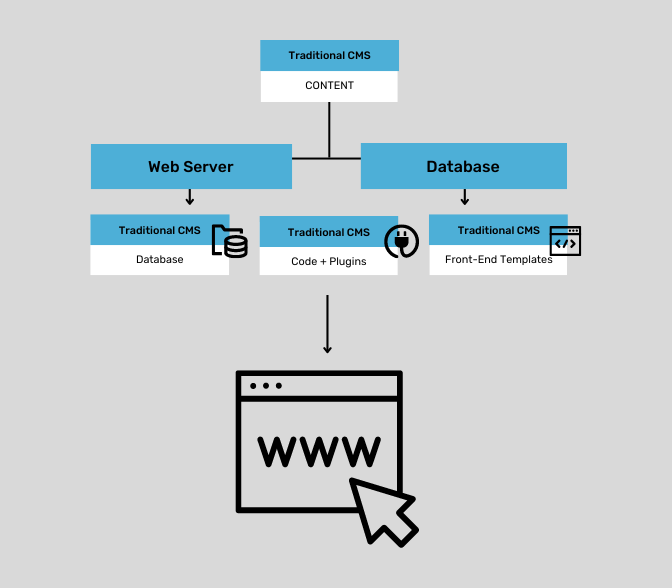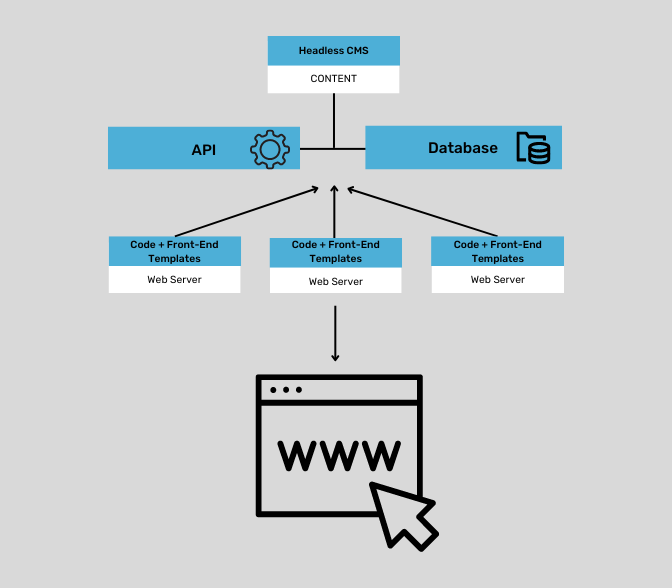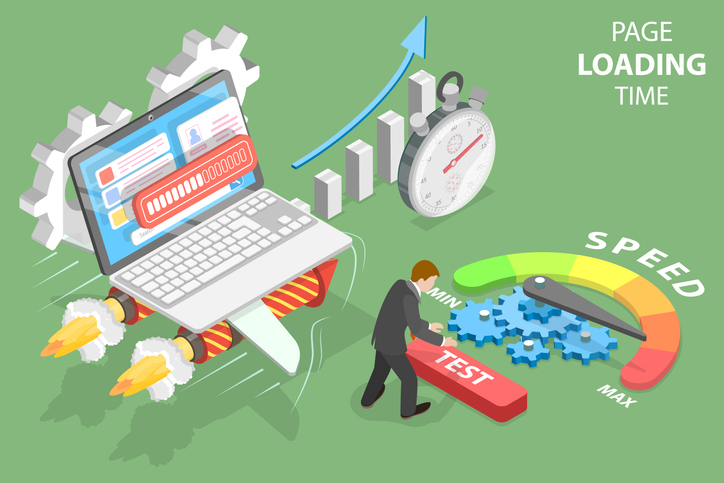What is a Headless CMS
by Alyssa Foriska
Once the standard for hotel website development, the traditional content management system, or CMS, was (and is still) used to store and serve elements related to content such as text, images and more to end users. Recently, aggressive advancements in technology are moving the traditional CMS to the back-burner in favor of a headless approach. So, what is a headless CMS?
A headless CMS is decoupled, or removed, from the front end of a website and offers a content-first approach that utilizes an API to access and display content. Alternatively, content is created managed and stored on the site’s back end, via a traditional CMS. In this post we take a deep dive into what going headless means for today’s hotel marketer.
Headless Websites for Hotels
Designed to render as quickly as possible, headless websites decouple your database from what a customer sees, and relies on multiple servers instead of one. In this scenario, one server acts as feed, while the front end pulls data and builds it into a compiled static version of your hotel website.
A headless website can be managed by way of a variety of content management systems, and allows you the option to update or change your CMS, while maintaining the same front end assets. Learn more about choosing the right CMS for your hotel website.
Big name brands like Netflix, Hulu and Nintendo are already utilizing this new technology, so we know headless is here to stay.


Advantages of a Headless Website
There are many advantages of going headless, however SEO and performance improvements are at the top of our list.
A decoupled CMS means that you’re not waiting on a response from your database or your Javascript to render, which can add seconds to your page load time. In turn, headless design removes concerns of caching, database optimization, and image optimization – all barriers to improving hotel SEO. With a headless solution, you’re not actually changing or reloading the page. Instead, content is shifting, which translates to faster load times.
Separately, there are additional advantages to headless design for hotel websites.
- Going headless creates separation between front end and back end developers, where they can work separately, in turn reducing code conflicts and website issues.
- Headless websites offer a flexibility in programming language. Developers can code as they’re comfortable without having to adhere to platform limitations.
- The headless CMS offers affordable, easier-to manage hosting, in turn proving to be a scalable option for future needs.
- Serving static html that is disconnected from your hotel website’s back end and administration panel leaves swindlers unsure of where to look for exploits.
- With a headless website, your back end could go down, however your public-facing domain is static and no longer dependent upon your CMS for uptime.

Disadvantages of a Headless Website
While the pros of going headless far outweigh any cons, there are still a few disadvantages of a headless website worth noting.
- With any new improvement or technology comes a cost. We recommend budgeting in advance for the inevitable transition.
- Going headless means you’ll need to reconsider your website’s architecture, as content will need to be extracted and rendered differently.
- You will forfeit some flexibility in lieu of the aforementioned performance gains. For example, the lack of plugin support prevents the injection of unnecessary JS and CSS.
- There will be a learning curve for traditional website developers. We recommend working with an expert, or contacting us for an evaluation.
Cost of a Headless Website
The cost of a headless website or decoupled CMS depends on a variety of factors. For most independent hotels, we suggest there would be a potential decrease in costs (after considering current hosting costs). For larger brands with a higher volume of traffic, it’s possible that costs may increase. Taking the benefits of headless design into consideration, it’s likely worth it either way.
Factors that play a role the cost of hosting your headless website include:
- Volume of traffic
- Server functions, like remote calls to third parties
- Storage and file optimization, primarily images
Headless Website Tracking
Implementing analytics on your headless hotel website was a top consideration for us. After all, your marketing decisions should be based on data. Headless websites will support in-depth tracking solutions just as a traditional CMS would.
If you’re familiar with hotel analytics tracking, one thing to consider is that the Google Analytics global snippet would now be based on the Google Tag Manager’s History Change Trigger versus the traditional ‘Pageview’ event. This is due to the content shift versus page load we mentioned earlier.
Headless CMS FAQs
A headless approach is a website development concept that separates the CMS from the front end.
Going headless means you’ve chosen to detach your hotel website’s front end and back end, or CMS.
The term ‘headless’ is derived from splitting the body (back end, or content) from the head (front end) of a website.
A headless design is a website served as static html to capitalize on performance and security gains.
Headless SEO applies specifically to optimizing content for search using a headless CMS, however traditional SEO best practices would still apply.
Yes! There are a variety of unique SEO benefits to going headless, most importantly site speed and page load time improvements.
Ready to go headless? TravelBoom can help. Contact us today for a free evaluation and to learn what going headless means for your hotel.